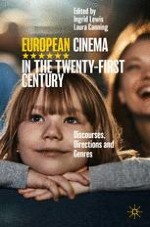2020 | OriginalPaper | Buchkapitel
18. Spanish Horror Film: Genre, Television and a New Model of Production
verfasst von : Vicente Rodríguez Ortega, Rubén Romero Santos
Erschienen in: European Cinema in the Twenty-First Century
Verlag: Springer International Publishing
Aktivieren Sie unsere intelligente Suche, um passende Fachinhalte oder Patente zu finden.
Wählen Sie Textabschnitte aus um mit Künstlicher Intelligenz passenden Patente zu finden. powered by
Markieren Sie Textabschnitte, um KI-gestützt weitere passende Inhalte zu finden. powered by
